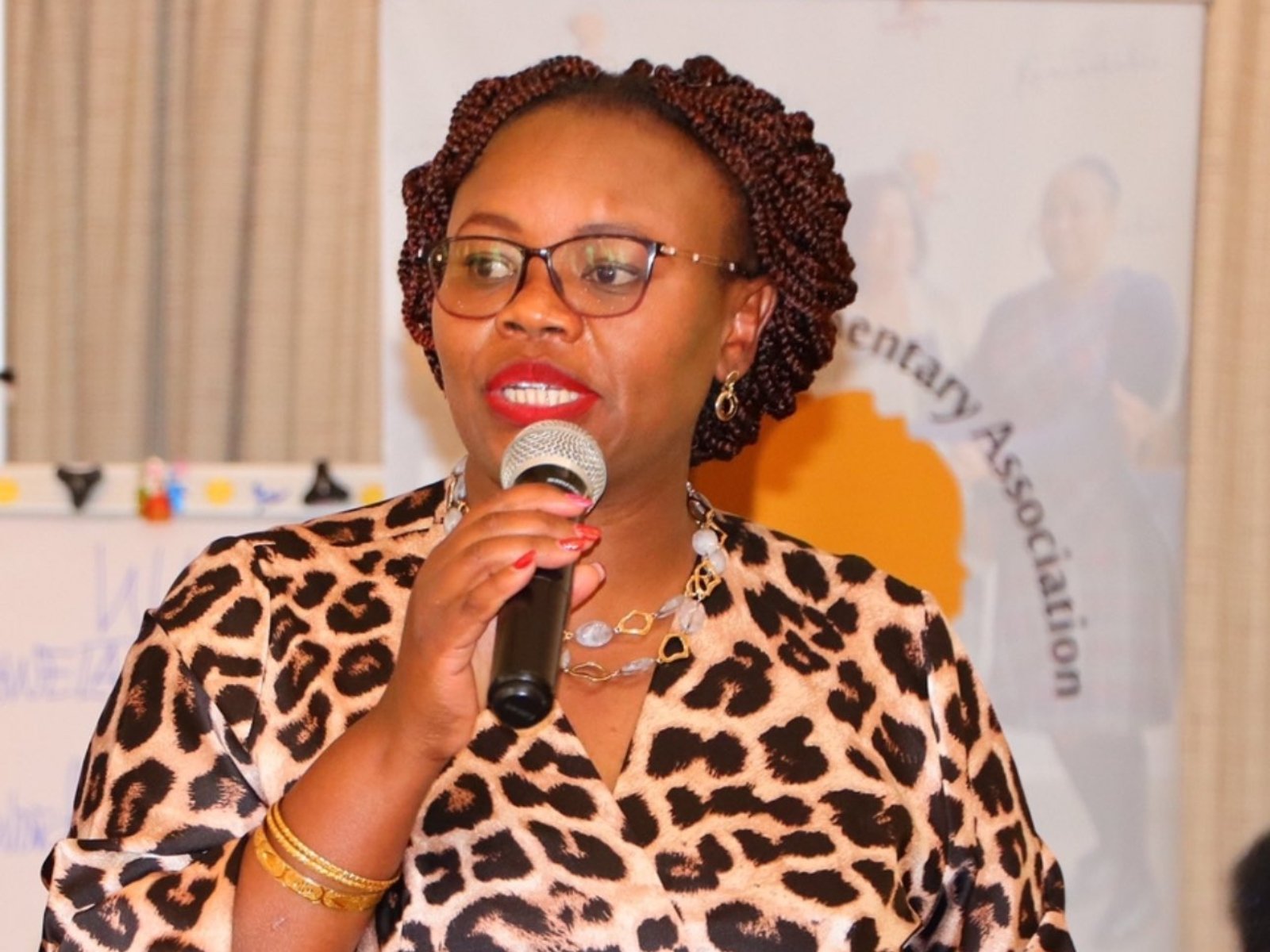Kenyans win Keeling Curve Prize for climate solutions

Two Kenyan organisations in the frontlines of climate innovation, AgriTech Analytics Ltd and Octavia Carbon, are among this year’s Keeling Curve Prize ten global winners.
From pioneering AI-driven tools for smallholder farmers to building Africa’s first Direct Air Capture company, both organisations are advancing climate solutions that are not only visionary but rooted right here in Kenya.
The Global Warming Mitigation Project (GWMP) announced this year’s winners live at the recent TED Countdown Summit in Nairobi, awarding US$50,000 to each of the ten winning projects to help expand their impact in the fight against climate change.
The summit brought together a visionary group of global innovators, business executives, scientists, policymakers, next-generation leaders, artists, activists — all united in their commitment to building a brighter future for people and planet.
Ten organisations championing climate action from around the world have each received US$50,000 to scale their ground-breaking climate solutions, including Kenya’s very own AgriTech Analytics Ltd and Octavia Carbon.
Now in its eighth year, the Keeling Curve Prize recognises and supports projects already delivering measurable climate impact — and helping accelerate the shift to a more resilient planet.
The prize has become a launchpad for pioneering climate solutions. It actively supports organisations developing practical, scalable answers to the climate crisis — solutions already delivering measurable results for people and the planet.
“If you’re wondering where to invest or how to take action on climate solutions, this prize is the place,” said GWMP Founder and Executive Director Jacquelyn Francis.
Funding ideas
“We see applications from around the globe—solutions both big and small, nature-based and high-tech—that, if scaled, can not only help mitigate climate change but also lead to economic growth.”
Since its inception, the Keeling Curve Prize has received over 2,500 applications and awarded US$2.75 million to 80 winning organisations.
Collectively, those winners have gone on to secure more than US$2.75 billion in additional funding. The 2025 cohort, selected from 20 finalists, reflects the extraordinary diversity of today’s climate innovators.
From AI-driven zero-waste fashion to profitable native forest restoration, these projects show how creativity, technology, and determination can converge to address one of humanity’s greatest challenges.
“The work of the Keeling Curve Prize is more urgent now than ever,” said GWMP Director of Prizes Ruth Metzer, expressing concern that 2024 was the first year the world began overshooting the 1.5°C warming target set by the Paris Agreement.
“This prize uplifts and funds ideas across a spectrum of solutions and geographies to rapidly reduce emissions and store carbon,” she added.
Two winners were selected from each of the prize’s five categories. Kenya’s Agritech Analytics won in the Social & Cultural Pathways category for projects shifting behaviours, values, and policies to support a post-fossil fuel future.
Agritech Analytics helps smallholder farmers monitor crops and soils using AI-driven sensors that detect pests, diseases, and perform on-site soil diagnostics.
Results are sent via SMS or their FarmPulse App — enabling timely, informed decisions that improve yields, raise incomes, and support sustainable farming.
CEO & Co-founder Maryanne Gichanga said Agritech Analytics was thrilled and honoured to have won the Keeling Curve Prize.
“This recognition is a victory for the smallholder farmers we currently serve, and the millions more across Africa who are on the frontlines of climate change. We’re proud that our AI-powered IoT sensor and FarmPulse platform are now part of the prize’s legacy, which celebrates real, scalable climate solutions,” she added.
According to Gichanga, their work helps farmers detect crop diseases and pests in real-time, reduce harmful emissions from overuse of fertilisers and pesticides, and reclaim degraded land, restoring ecosystems and strengthening food systems.
She said winning the prize fuels AgriTech Analytics’ mission to scale, empowering more smallholder farmers, restoring vast areas of degraded land and significantly cutting greenhouse gas emissions.
It affirms that solutions co-created with communities and rooted in local realities are key to securing a healthier planet.
“We’re deeply grateful to the Keeling Curve Prize team for believing in our vision, and even more excited for what comes next. Together, we are regenerating agriculture, empowering rural livelihoods, and bending the emissions curve, right where it matters most,” said Gichanga.
Eco-friendly fashion
SXD of Allston, Massachusetts, USA, which transforms fashion brands’ leftover textiles into stylish zero-waste clothing using patent-pending AI, also won in the Social & Cultural Pathways category.
SXD’s system eliminates material waste and creates efficient designs—achieving up to 69 per cent material savings, 80 per cent lower carbon emissions, and up to 55 per cent cost savings across the fashion production process.
Kenya’s other winner Octavia Carbon, was in the Carbon Sinks category, for projects accelerating carbon capture through nature-based and engineered solutions. Octavia Carbon is the first Direct Air Capture (DAC) company in the Global South.
Their DAC technology removes CO₂ from the air for safe storage or conversion into climate-neutral carbon products. Using Kenya’s renewable energy, geology, and talent, they aim to lower DAC costs and advance global decarbonisation.
The other winner in the Carbon Sinks category was Canada’s Carbon Upcycling Technology Inc’s CUT CO₂ System, which strengthens construction supply chains by localising critical material manufacturing.
The technology transforms CO₂ and industrial by-products into an abundant and local source of cement materials with a lower carbon footprint.
In the Energy category for projects advancing clean, affordable, and scalable energy, Gham Power of Kathmandu, Nepal, was one of the two winners.
Founded during Nepal’s energy crisis, Gham Power began with solar solutions for load shedding. Now with over 4,000 projects, they combine solar tech and innovative financing to deliver clean, reliable energy—empowering rural communities, reducing emissions, and supporting sustainable development.
Kraftblock of Sulzbach, Germany, also won in the Energy category, for its high-temp thermal storage that captures surplus clean energy when high renewable output strains the grid, helping decarbonise industry and power systems.
In the Finance category, for projects mobilising financial innovation to drive climate action, Terraformation of Waimea, Hawaii, USA, was one of the two winners, for restoring native forests through a model that supports profit, people and the planet.
The other winner in the Finance category, also from the USA, New York’s TopoFinance, taps into treasury management to drive climate action. As a leader in climate-aligned finance, they help shift trillions toward decarbonisation.
In 2024, they worked with organisations managing over US$500 billion, guiding them to align cash stewardship with long-term planetary impact.
In the Transport & Mobility category, for projects transforming transportation by shifting away from the internal combustion engine, another US company, Carma Technology of Austin, Texas, has an app, GoCarma, which currently rewards 90,000 Dallas-Fort Worth commuters with incentives for low-emission travel.
Another US corporation, ElectricFish Energy Inc. of San Carlos, California, was the other prize winner in the Transport & Mobility category.
ElectricFish builds microgrids that quickly enable fast EV charging and emergency backup for fleets in grid-constrained areas — in days, not years.
“The Keeling Curve Prize is one of the most effective ways I’ve seen to cut through bureaucracy and get funding to those driving real change,” Ruth Metzer added.
“We urgently need to accelerate climate action—and the prize is leading that charge.”












